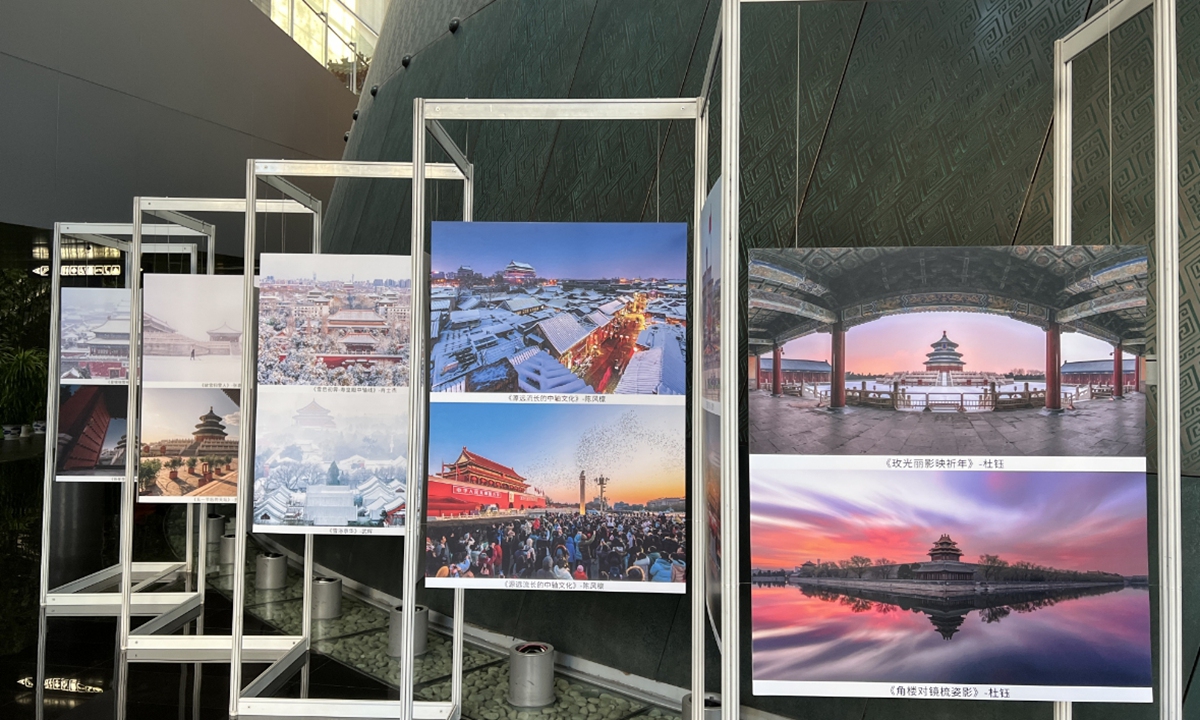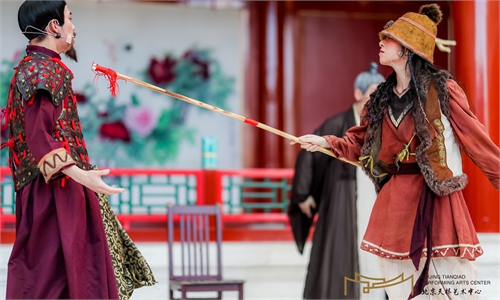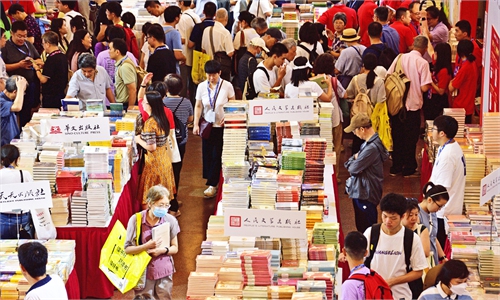ARTS / CULTURE & LEISURE
Beijing Central Axis competition awards 302 works, enhances public awareness

Photo: Lou Kang/GT
The award ceremony for the 2023 Competition for the Transmission and Promotion of the Beijing Central Axis took place on Sunday in Beijing, celebrating 302 outstanding works out of thousands of entries from participants home and abroad. The competition aimed to enhance public understand-ing of this cultural heritage.Since its inception in 2021, the competition has seen three editions. According to the figure published at the cer-emony, the number of participants nearly tripled compared to that of the previous year, reaching close to 300,000 from 13 different countries and across all age groups. A total of 80,357 works were received, resulting in 302 winning entries across five main tracks and 12 sub-tracks, spanning the creative arts, music, fashion design and digital media.
"The 2023 competition, launched in April and concluded in November, incorporated new elements such as music, distinguishing it from previous years," Chen Mingjie, director of the office for the Protection of the Beijing Central Axis World Heritage Site, told the Global Times on Sunday. "Over the three years of the competition, the number of participants has grown from tens of thousands to over 100,000, showcasing an evolving public engagement with the Central Axis."
At the award ceremony held at the Capital Museum on Sunday afternoon, young participants from both China and abroad showcased their award-winning works on stage. A total of seven groups performed live at the event as well.
"As 80.69 percent of participants belong to the post-2000 and post-2010 generations, this shows that there has been a significant increase in the awareness of traditional Beijing Central Axis culture among young people. It also highlights the strong sense of identity that the new generation has to-ward outstanding traditional Chinese culture," Chen said.
The Beijing Central Axis is a crucial urban axis running through the capital from south to north, connecting his-torical and cultural landmarks such as the Palace Museum, Tian'anmen Square, and the Temple of Heaven. It is con-sidered an outstanding representative of ancient Chinese architecture, not only influencing urban planning but also reflecting the unique ancient Chinese architecture and culture.
To better protect the Central Axis, Beijing has established the Cultural Heritage Supervisor and Volunteer System, enabling the public to supervise and provide feedback on the protection and management of this cultural heritage. At the ceremony on Sunday, the first batch of 31 Beijing Central Axis Cultural Heritage Supervisors was announced, representing various sectors such as com-munities, museums, memorial halls, digital technology and school educa-tion. They are expected to provide complementary management support to various cultural heritage protection de-partments.
To integrate the Beijing Central Axis more effectively into urban life, a public participation mechanism for the protection and inheritance of Beijing Central Axis culture was recently published. This mechanism, built on the Bei-jing Central Axis Cultural Heritage Protection Regulations, will further improve the participation of social forces in the protection of the site.
In recent years, attention has been focused on the ancient buildings and cultural heritage along the Beijing Cen-tral Axis. During the process of preservation and restoration of the site, attempts have been made to integrate these ancient buildings with modern urban life to meet the demands of con-temporary society. Some historic structures have been transformed into museums, cultural centers, or commercial areas, injecting new vitality into the city.



